Data centers have a surprising ally: The communities they call home
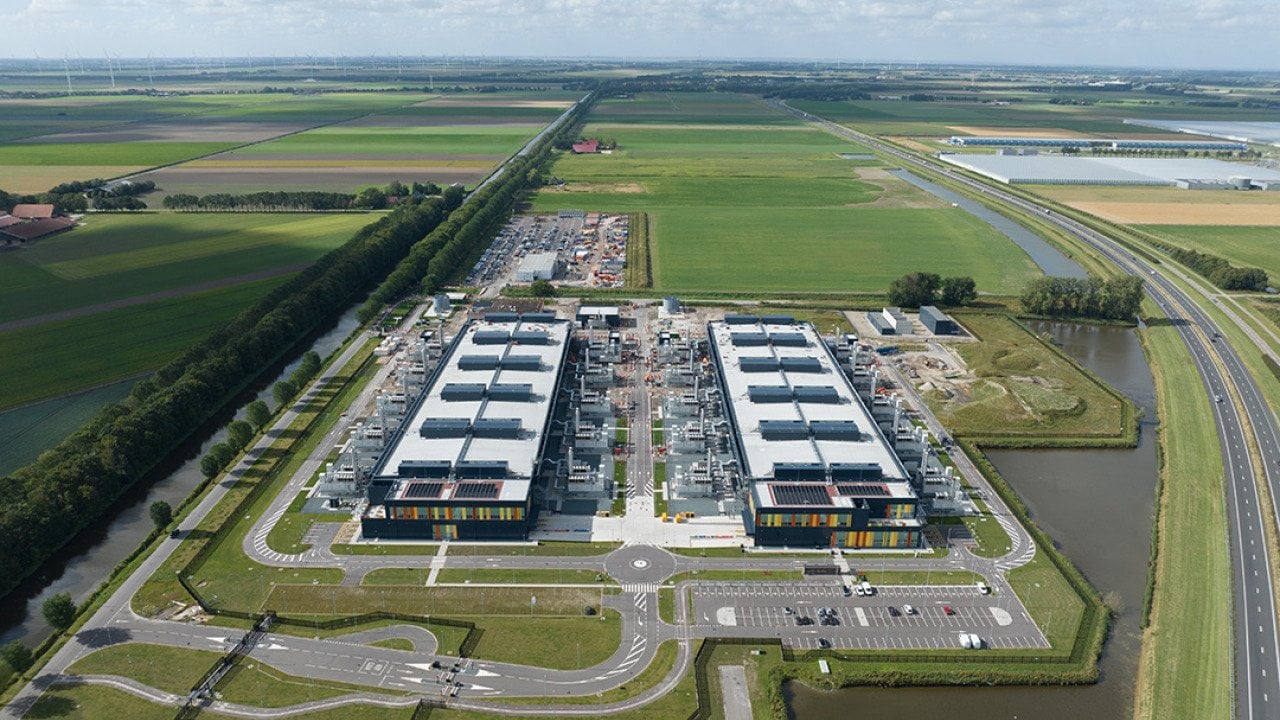
Make more Aerials // Shutterstock
Data centers have a surprising ally: The communities they call home
70% of Americans are comfortable with a data center within just a few miles from their home.
Americans may resist power plants and manufacturing sites, but they’re much more open to data centers in their neighborhoods. According to the new Data Center Neighborhood Survey Report from Airedale, a data center cooling company, many Americans believe that data centers can have a positive impact on their communities, and more than half support tax incentives to encourage their development.
This growing acceptance comes at a pivotal time. As demand for AI and cloud services surges, the need for new data centers has entered the national conversation.
To better understand public sentiment, 600 Americans aged 18 and older were surveyed using the Pollfish platform. Findings show that, while people recognize the importance of data centers in supporting technology leadership and internet reliability, they also have clear expectations. Concerns around energy use, noise, and community impact remain, and there’s strong support for developers who invest in local initiatives.
The takeaway? The industry has a window of opportunity to grow responsibly, with public support, by focusing on transparency, sustainability, and positive community impact.
The public pulse on data centers: Trust, expectations, and opportunity
While industrial projects often face local resistance, data centers appear to be the exception. Airedale’s survey found that 21% of Americans are comfortable with a data center within less than a mile of their home, and another 26% are fine with one up to a mile away, suggesting broad acceptance that could smooth the path for expansion.
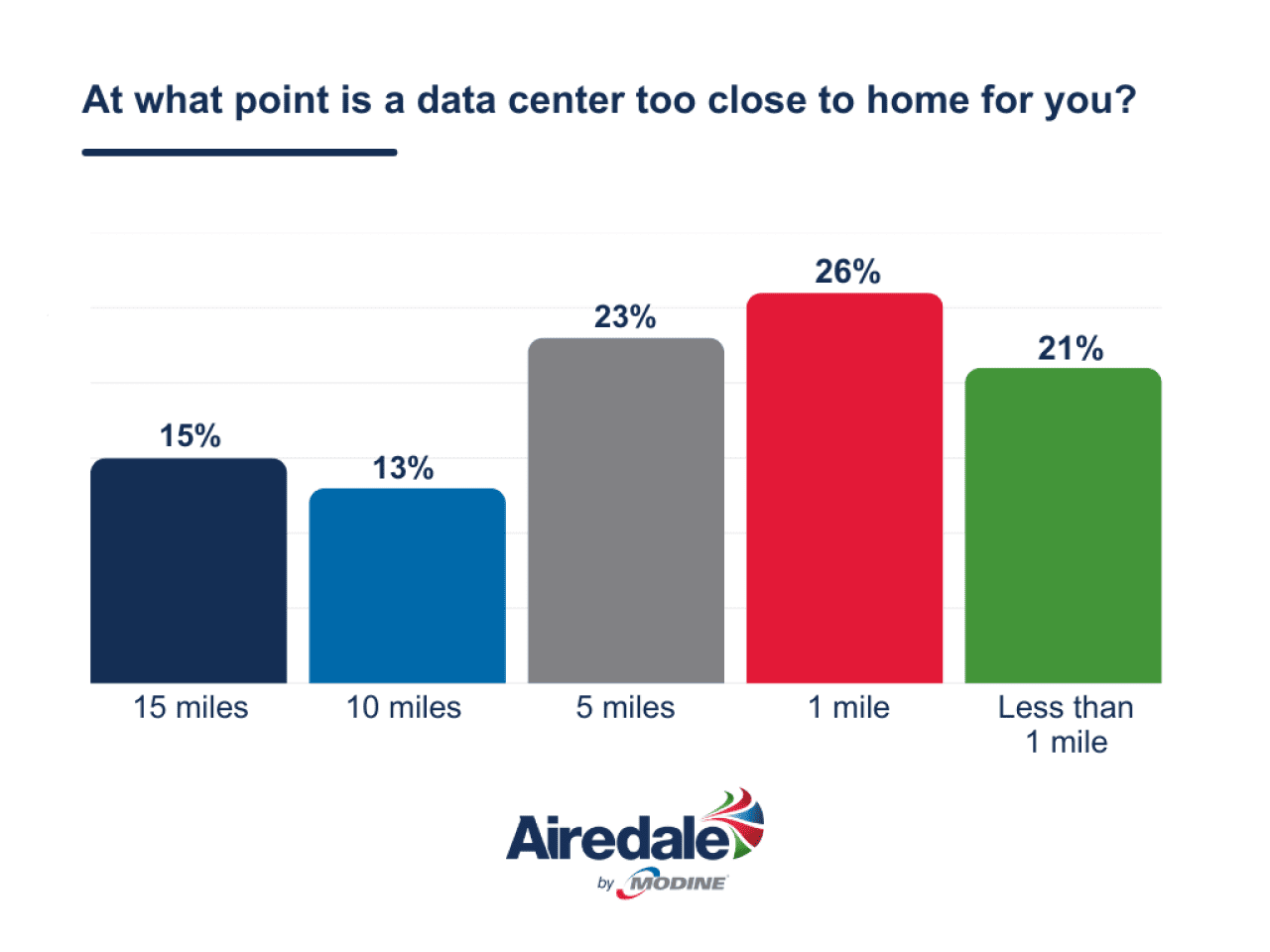
Airedale
Looking ahead, public expectations for data centers over the next decade are a mixed bag. While 45% believe data centers will benefit their communities, 37% expect no impact, and 19% foresee negative effects. Concerns around energy use, land impact, and sustainability remain top of mind. Since cooling systems drive much of a data center’s energy load, improvements in energy-efficient cooling could shift perception in a big way.
Tax incentives for developers also see solid support: 55% of respondents are in favor, while just 14% oppose them. The remaining 32% are undecided, indicating room to build support with the right messaging. For data center operators, this is a chance to highlight energy-efficient innovations and local benefits — like job creation and sustainability — as pillars of responsible growth.
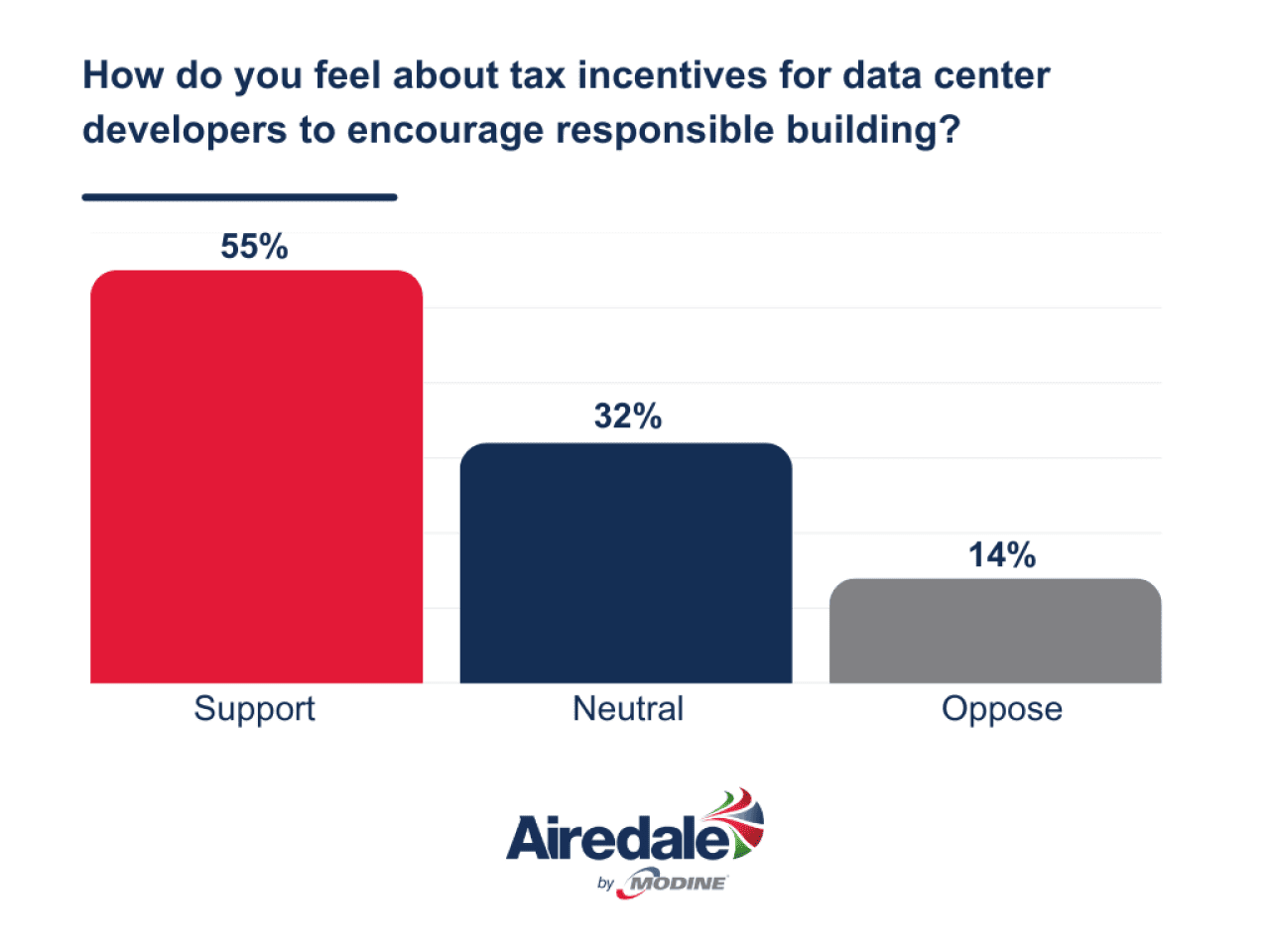
Airedale
As data centers grow, public support will depend on smart technology and policy. Efficient cooling solutions can reduce environmental impact and win community trust. With many still on the fence, now is the time for industry leaders to show how innovation makes data centers better neighbors.
Strengthening public support through responsible development
Environmental concerns top the list when it comes to opposition to local data centers. Among those uncomfortable with a data center within five miles of home, 63% worry about energy use, 60% cite noise pollution, and over half (52%) fear declining property values. Construction disruption, aesthetics, and limited community benefit also rank high. These concerns highlight the need for responsible development, especially around energy efficiency, noise reduction, and smart site selection.
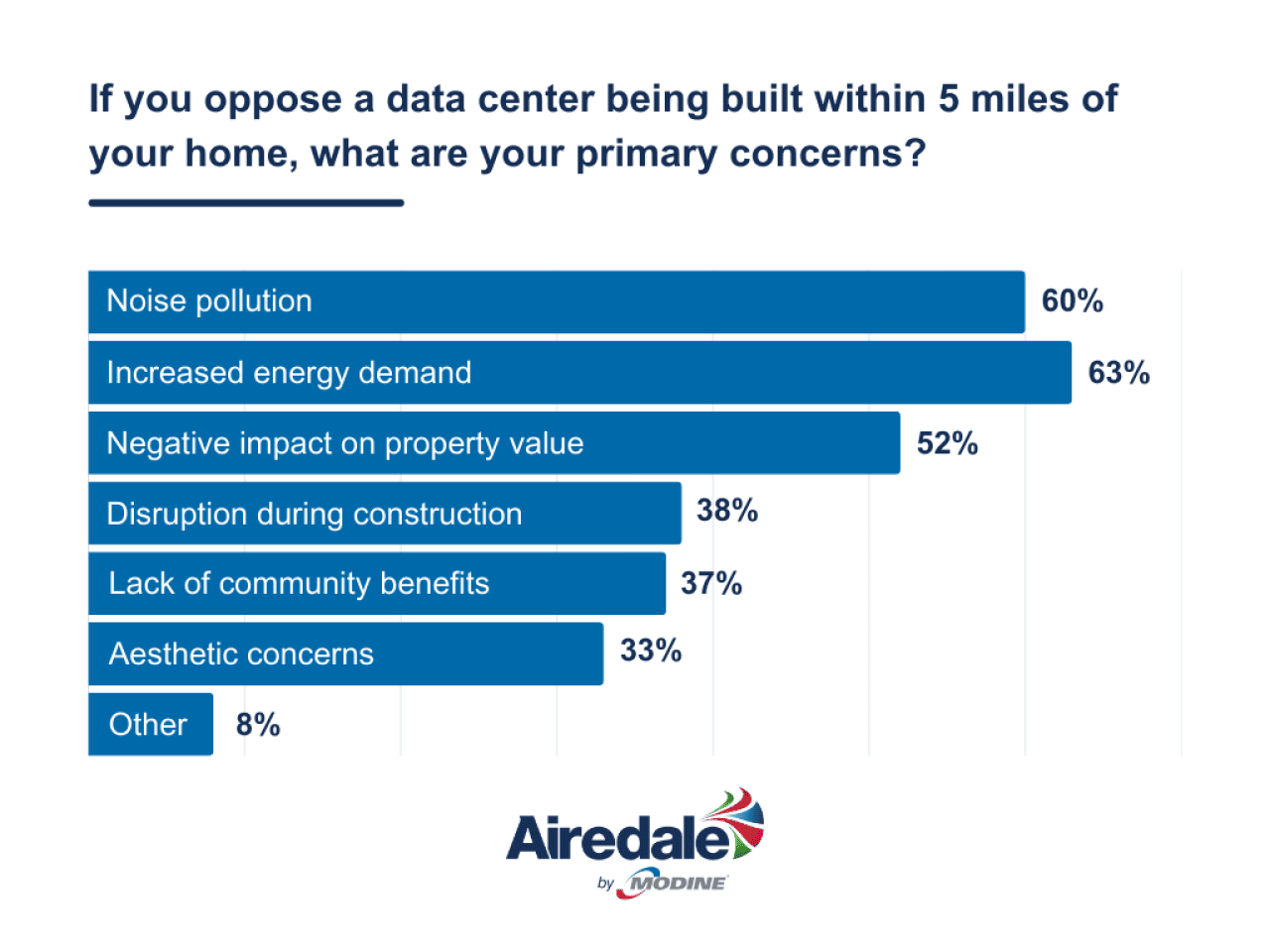
Airedale
The good news: There’s a clear path to public support. More than 60% of respondents said their perception of data centers would improve if operators invested in local initiatives like education or infrastructure. Only 4% said it would negatively affect their opinion. That’s a strong signal that companies can earn trust — not just by minimizing impact, but by actively contributing to community progress. Programs focused on job training, sustainability, and local development can help turn skepticism into long-term support.
Americans recognize the value of data centers
Most Americans have at least a basic understanding of data centers. While only 28% say they fully grasp how data centers work, nearly half (49%) have a general sense of their purpose, and just 24% admit to limited knowledge. Notably, no one reported being completely unfamiliar.
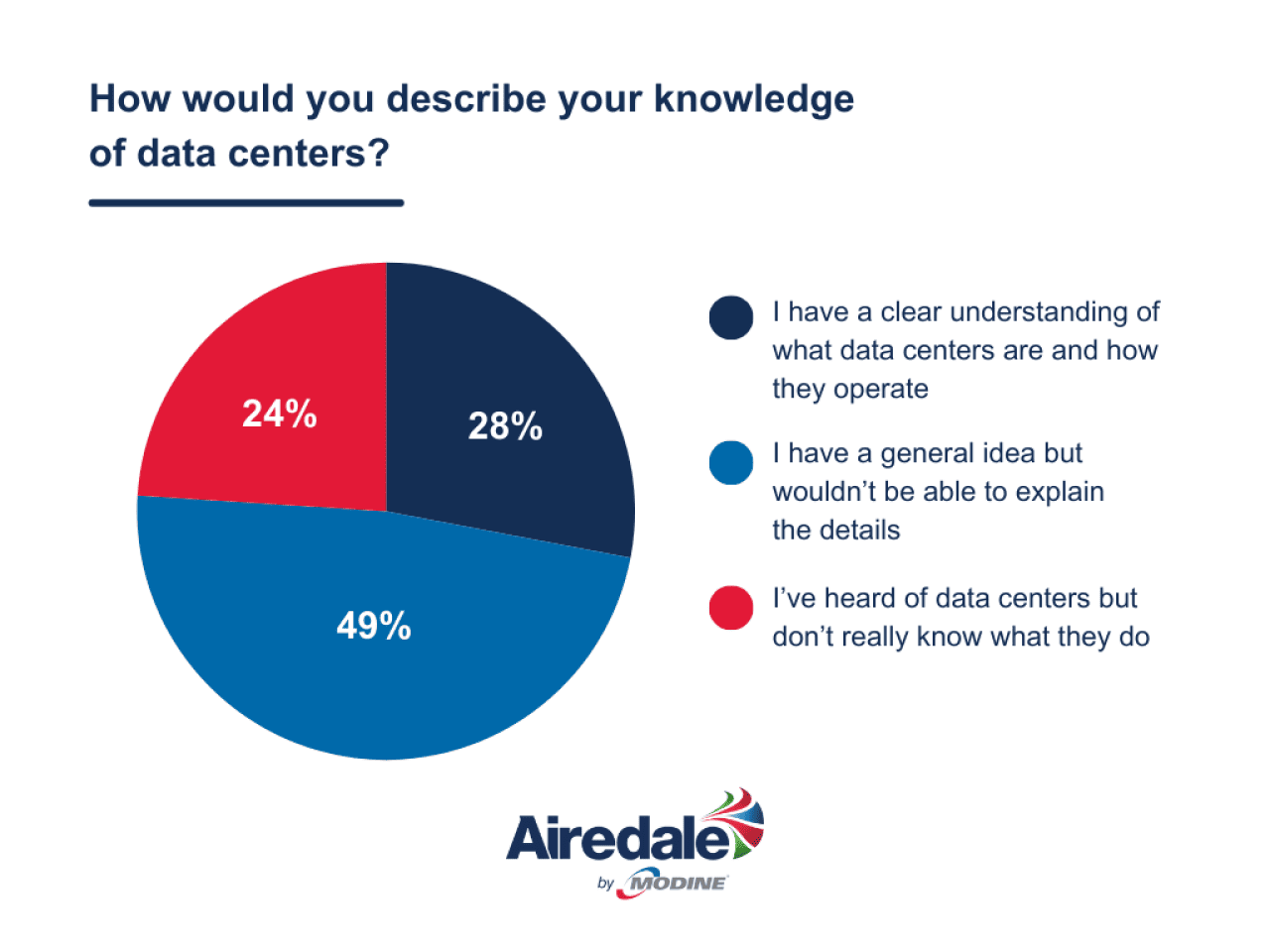
Airedale
This awareness extends to support for growth. Among those in favor of more data centers, 59% cite the need to maintain U.S. tech leadership, and 46% believe demand for storage and processing will keep rising. Others see benefits in internet reliability (43%), innovation (33%), national security (27%), and even essential services (18%). Encouragingly, 11% trust that newer data centers will prioritize sustainability — suggesting that innovation is building public goodwill.
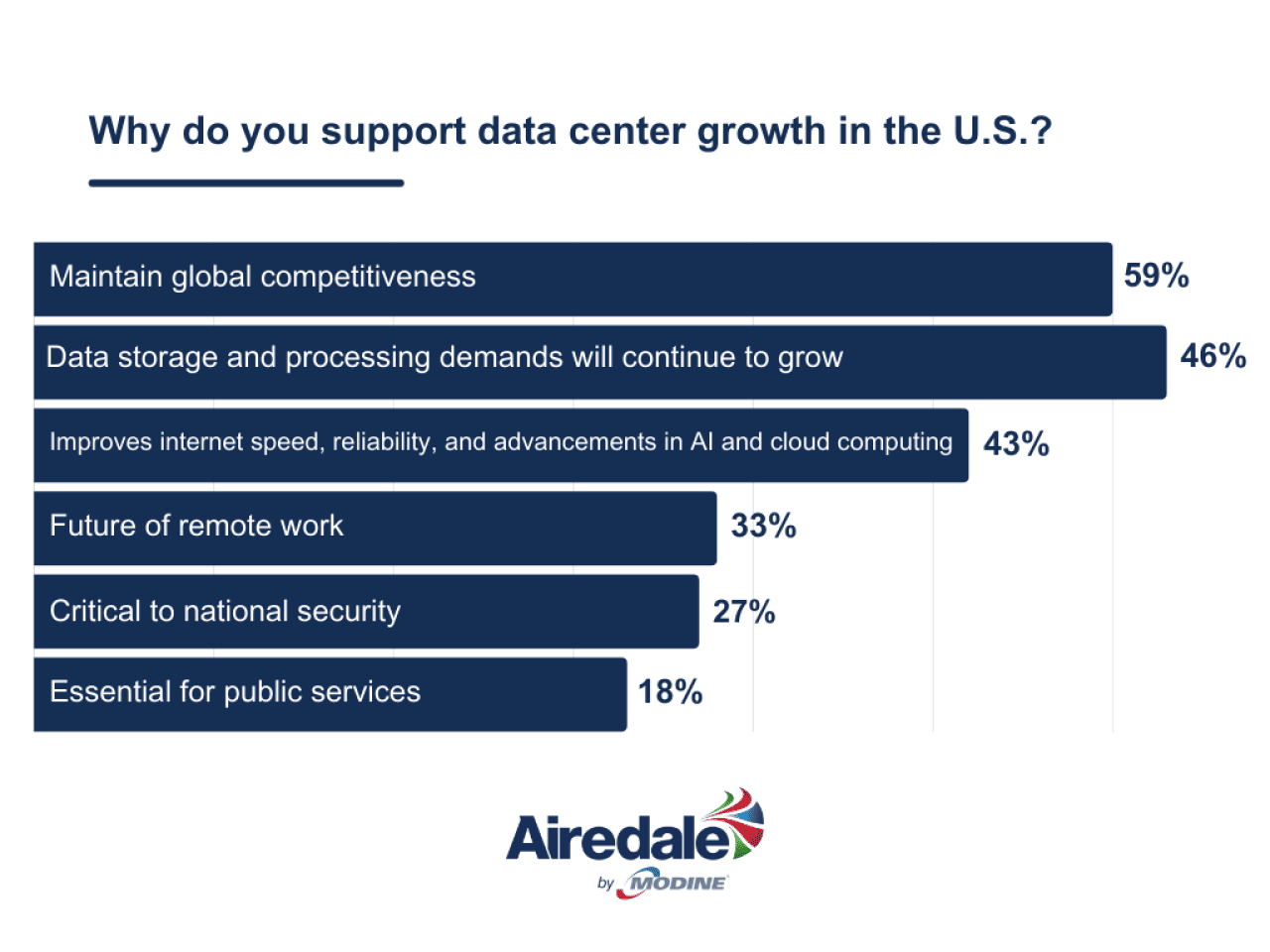
Airedale
A critical moment for data centers and the communities they live in
The public increasingly understands the role of data centers and supports their expansion when it’s handled responsibly. While concerns about energy use, noise, and local disruption remain, they don’t shut the door on growth. They simply outline what the public expects.
The takeaway
This is a rare chance for the industry to build with community buy-in. But that support hinges on sustainable design, transparent communication, and meaningful local engagement. Done right, data centers won’t just power the digital world — they’ll earn a place in the physical one, too.
This story was produced by Airedale and reviewed and distributed by Stacker.
![]()



